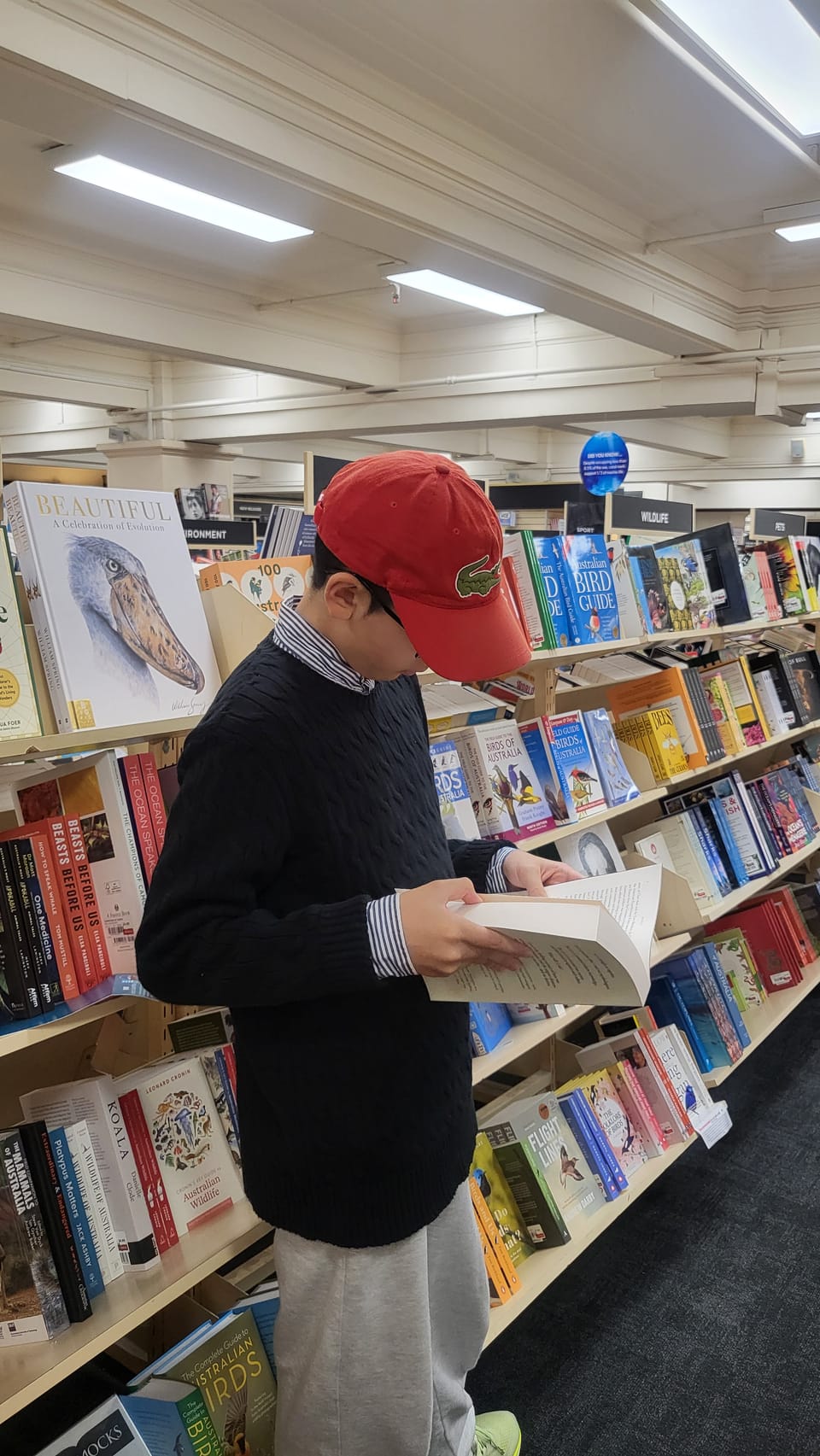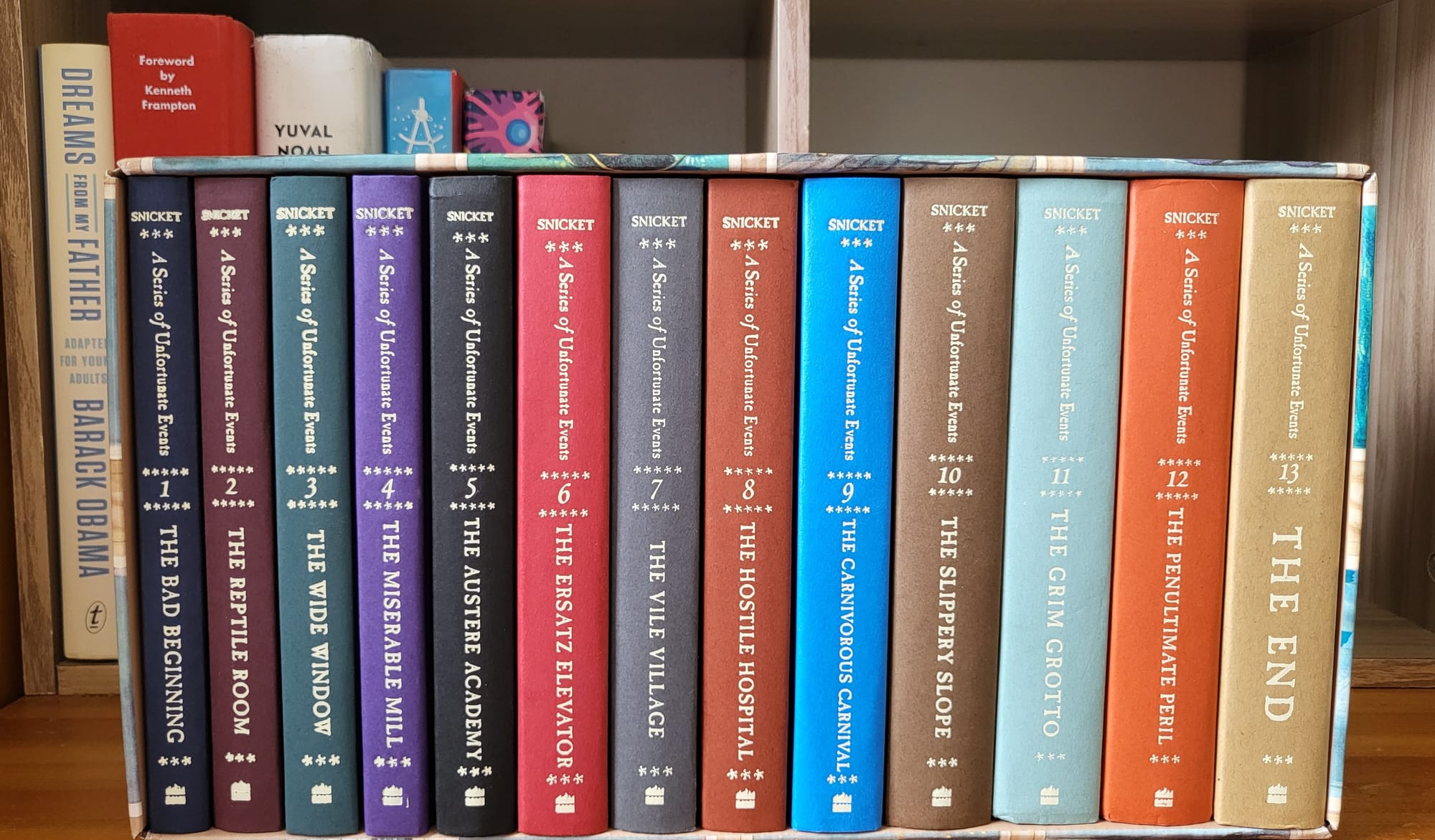Review: A Series of Unfortunate Events

Author’s Notes: A Series of Unfortunate Events is my brother and I’s favourite book series. While it is a children’s book series, I find that it can shape our perception of the world and everything in it. I highly recommend this book to adults and children alike!

The blue water pressed against the shore and pulled back. The sky hung low in a grey haze, heavy and still. Footprints marked the coast where the Baudelaire children stood. Around them, nothing moved. Violet, the eldest of the Baudelaires, drew lines in the sand, etching plans of contraptions. Klaus kept his distance, his glistening eyes caught the glow of the crimson sunset. Sunny, an infant, bit into round stones, her teeth leaving marks on their worn surface.
A cough cut through the silence. A man in a black suit stepped forward, shoes sinking into the sand. In a second, the Baudelaire home was no more than ash and memory, burning down with their parents inside it. The children’s first guardian, Count Olaf, was after their fortune, and all guardians after that always failed or refused to help, no matter how close Count Olaf and his intentions were.
As I followed the Baudelaires on their quest for a safe home and history regarding their own parents, I was reminded of The Little Prince. Both stories, though different in tone and style, reveal a similar truth: that adults often cling to impossible beliefs or fail to see what truly matters, believing they are doing the right thing but leaving behind harm instead. In A Series of Unfortunate Events, most guardians and figures of authority have good intentions, protecting the Baudelaire children from any harm. Yet, when real danger arises, they often hesitate, misjudge, or simply look away. Some are well-meaning but powerless, others are too deep in rules and appearances, and a few ignore the children entirely. While we would like to believe that adults are wise, courageous, and steady protectors of the young, the series reminds us that adults too are more fragile than we would like to believe.
In The Bad Beginning, Justice Strauss, a well-meaning judge, is limited by the law and therefore unable to truly help the orphans. Similarly, in The Ersatz Elevator, Jerome Squalor, though he cares about the Baudelaires, avoids conflict and abandons them rather than standing up for what’s right. Even those who wish to help can fall short, and doing the right thing is often harder than it seems.
As the series progresses, the line between good and evil becomes less clear, and the Baudelaire children are caught in a perpetual confusion, unable to trust even the closest of friends. People and organisations the Baudelaires thought noble were connected to a ‘less noble’ history and past. Count Olaf, the villain, is revealed to have once belonged to a group called V.F.D. - the Volunteer Fire Department, a discrete organisation committed to stopping literal and metaphorical fires. Yet, after the murder of Olaf’s father, V.F.D split into opposing sides, referred to as the schism. The schism suggests that Olaf’s cruelty may have begun with disappointment, betrayal, or grief. In the series, no-one is truly good or bad, inviting readers to challenge themselves beyond simple binaries. However, inside the series, what’s decent starts from evil, and what’s evil starts from decency.
Throughout A Series of Unfortunate Events, I noticed that no matter how hard a noble volunteer works to help the Baudelaires, they always fail. While the Baudelaires try to run away from Count Olaf, he always finds the children, murdering other guardians for the fortune the Baudelaires’ parents left behind. When V.F.D finally meets with the Baudelaires, they go to the Hotel Denouement, the Last Safe Place, to bring Count Olaf to justice. Yet, the judges, associates of Count Olaf, frame the Baudelaires instead, as the villain burns the hotel down, along with all evidence of his treachery.
The Baudelaire children had not chosen to navigate through a world where evil stalked them from every corner. As their story drew to a close, the children understood what so many could not. While fires, literally and figuratively, followed, they learnt that not all adults were capable of supporting them, contrary to what we would want to believe in, also learning that no-one is ever truly good or bad. Whether in fiction or reality, the truth is never simple. It is a story of failure, a story of survival, and a story of quiet courage.
Member discussion